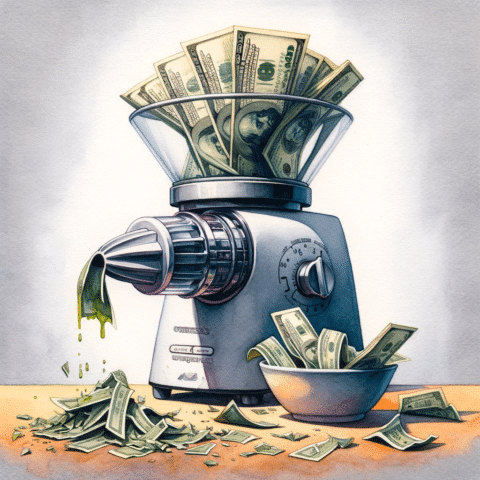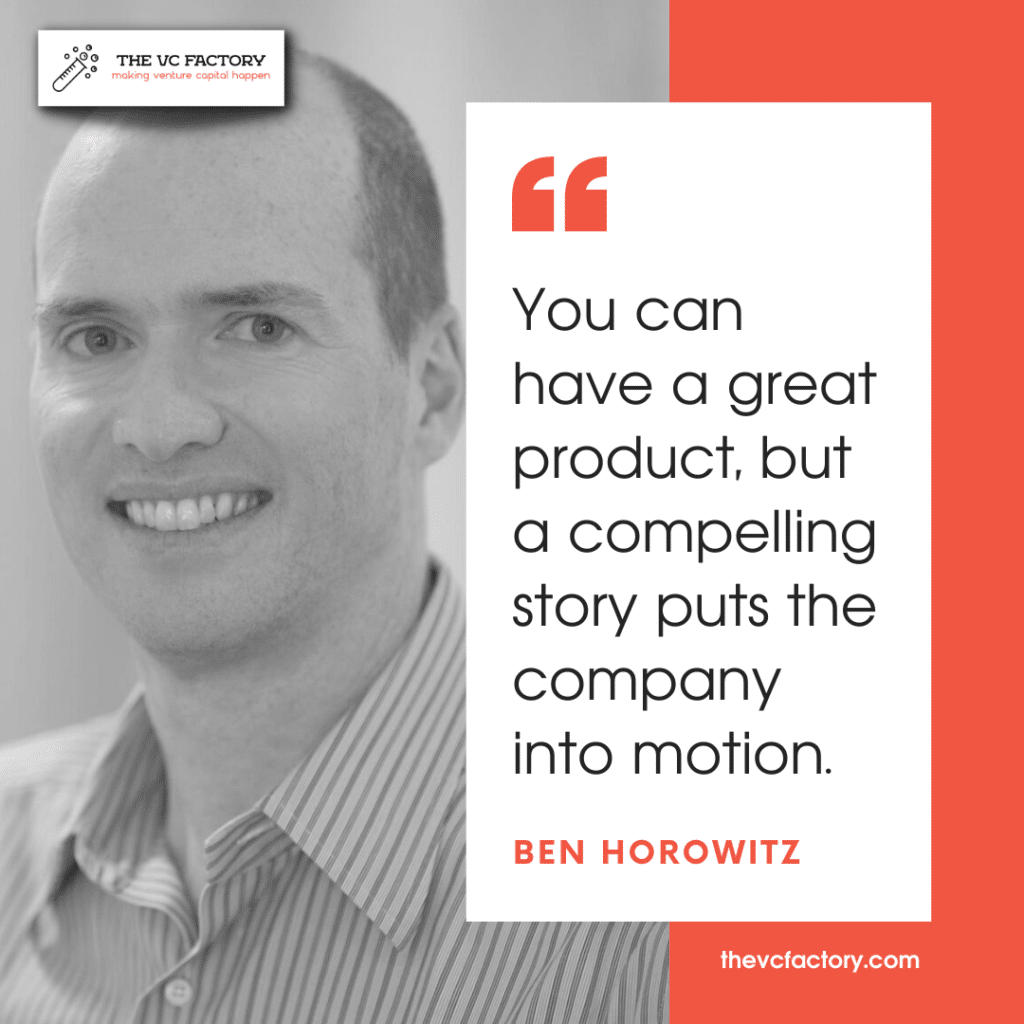Juicero: How Founder Charisma and VC Projection Bias Led to a $120 Million Failure
- 304 views
- 12 minute read

In the annals of Silicon Valley's storied history of booms and busts, the tale of Juicero stands out not merely as a business case gone awry but as a psychological enigma. How could savvy Venture Capitalists, seasoned in the art of discerning the wheat from the chaff, pour substantial resources into what now seems, in retrospect, a glaring misstep? The answers lay not in the spreadsheets of financial forecasts nor the mechanics of the product itself but in the complex tapestry of human psychology. The Juicero debacle compels us to look beyond the surface-level business dynamics and into the deeper, often overlooked causes rooted in cognitive biases and emotional influences. How could such seasoned Investors have been so mistaken?
In this post, I delve into the psychological underpinnings that played a pivotal role in Juicero's rise and fall. I peel back the layers of Founder charisma—a compelling force that can cloud judgment and skew investment decisions. I also examine the subtler yet equally potent power of projection bias, where Investors and Founders imbue their desires and expectations onto the market, crafting an illusory demand that fails to materialize. These factors contributed to Juicero's initial allure and subsequent downfall, offering a stark reminder that even the most experienced Investors are not immune to the seductive power of a charismatic Founder and the distortions of their own cognitive biases.
In This Post
The Rapid Rise and Hard Fall of Juicero
Juicero’s story begins with a problem-solving mission: to make fresh, nutritious juice available in every home. The brainchild of Doug Evans, Juicero was poised to disrupt the health and wellness industry with its state-of-the-art juicer and proprietary juice packs. It was a vision backed by more than $120 million in venture capital from some of the most reputable VC firms in Silicon Valley, including Google Ventures and Kleiner Perkins.
The company’s ascent was meteoric. With an attractive narrative for health-conscious consumers and a sleekly designed product, Juicero quickly became a media darling. The tech world buzzed with anticipation, and Evans's regular comparisons to Steve Jobs only heightened expectations. The Juicero press, a sophisticated piece of machinery initially priced at $699, was touted as the next must-have kitchen appliance, promising convenience and quality with a tap of a smartphone screen.
There is no doubt the packs can be squeezed without the machine.
Doug Chertok - Juicero Investor (Source: Bloomberg)
But the story took a turn when it was revealed that Juicero’s produce packs could be squeezed just as effectively by hand, rendering the expensive press unnecessary. The backlash was swift. Investors and consumers alike felt duped, leading to a steep decline in sales. The price drop to $399 did little to salvage the company's reputation or finances.
The now-infamous Bloomberg video dealt a devastating blow to the company's credibility. It destroyed Juicero's carefully crafted image of technological innovation and ignited a firestorm of criticism, exposing the company's exaggerated claims and sending shockwaves through the tech industry.
Juicero’s descent was as rapid as its ascent. In 2017, a mere 16 months after the product's launch, the company ceased operations. Its journey is a stark reminder that in the startup world, a grand narrative is not enough; a product must fulfill a genuine market need and do so at a price point that makes sense to consumers.

I would not throw the baby with the orange juice: stories matter, as they effectively convey the potential of a new idea to Investors. However, as I demonstrate in the above post, storytelling needs a solid base anchored in reality.
The Red Flags Overlooked by Juicero Investors
The financial backing Juicero received was a testament to the confidence Investors had in the company’s potential. However, several red flags were apparent in hindsight, suggesting that the investment was perhaps more speculative than it should have been.
First, there was the issue of the product's high cost. At $699, the Juicero Press was far more expensive than other juicers on the market, many of which also offered cold-press technology. The additional requirement of buying proprietary juice packs made the cost of owning and operating a Juicero even steeper, limiting the product's accessibility to a broader market.
Second, the value proposition was not superior to existing alternatives. While the technology was impressive, it did not drastically improve the user experience compared to the manual juicing process. The value of the internet-connected features, like expiration date tracking, seemed marginal compared to the device's primary function. I detailed this common mistake Founders make in the "Yet another product nobody wants" section in the post referenced below.
Third, the business model relied heavily on the recurring revenue from selling proprietary juice packs. Venture Capitalists love recurring revenues, and Juicero seemed to feature a "razor-and-blade" business model that is a reference in business schools. Before it became the "Nespresso business model," Gilette had popularized the idea of a device sold at a relatively low price, spurring frequent purchases of high-margin consumables. Game consoles like Nintendo and successful VC darlings like Dollar Shave Club leverage this business model.
Investors are very intrigued by businesses that combine the one-time sale of hardware that ends up leading to repeat purchases of consumable packages.
Brian Frank - FTW Ventures (Source: Bloomberg)
The dependence on continuous purchases put pressure on customer retention. The Product Packs, as they were called, were organic produce sourced directly from farms and delivered to the consumers' doorsteps. However, their high price of $5 to $8 a pop placed them out of reach of most people.
Other mistakes explain why Juicero did not grow as planned. In a 2022 podcast, Doug Evans shared that he had underestimated the challenges of sustainable packaging, creating a facility in the food industry, refrigeration issues, etc. Hindsight is 20/20, this article's objective is not to blame Founders but to highlight how VC decision-processes may be flawed by psychological biases Investors can avoid.
These red flags pointed to a fundamental misalignment between the product's cost, its value to the consumer, and the sustainability of its business model. Despite these concerns, the immense financial support Juicero received suggests that the Investors either overlooked these issues or believed that the company's innovative approach would eventually overcome them.
One of the hallmarks of the articles you find here is to find the cognitive biases at the source of VCs' mistakes. Experienced Investors know that mental processes trump technical analysis in an investment's decision-making process.
The Founder's Spell: The Influence of Charisma in VC
Charisma can be an intangible yet potent force in the startup world. With his compelling personal narrative and lofty comparisons to iconic innovators, Doug Evans certainly did not lack it. His ability to paint a visionary picture of Juicero’s future played a significant role in securing substantial Venture Capital investment.
Investors are often drawn to confident Founders who possess a clear vision and the ability to articulate it in a way that ignites the imagination. However, when not substantiated with practical business acumen, charisma can lead to overemphasizing vision at the expense of execution. This was evident in Evans's approach, where the focus on the narrative of a high-tech, health-promoting juicer overshadowed the practical considerations of product market fit and operational viability.
Doug Evans: The Allure of a Charismatic Leader
The German sociologist Max Weber argues that charismatic leaders can attract followers through extraordinary personal qualities. These qualities of charismatic leaders may include:
- A sense of mission or purpose: They are often seen as having a clear and compelling vision for the future.
- Exceptional communication skills: They articulate their vision in a way that inspires and motivates others.
- A strong sense of self-confidence: They are typically very confident in their abilities and beliefs.
- The ability to take risks: They are often willing to take risks to achieve their goals.
Weber argues that charismatic leaders are often able to break away from traditional norms and values. They may challenge the status quo and offer new and innovative ideas. This can be very appealing to people looking for change or feeling dissatisfied with the status quo.
Charismatic leaders are considered extraordinary and treated as endowed with supernatural, superhuman, or at least specifically exceptional powers or qualities.
MAx Weber - Economy and society (Source: JOOsSE, 2014)
However, Weber also argues that charisma is a double-edged sword. Charismatic leaders can be compelling, but they can also be very dangerous, as they can often persuade their followers to do things they would not normally do. In some cases, charismatic leaders can even lead their followers to extreme violence or destruction. (Although he has been accused of being a "proto-fascist," Weber's work is often quoted to explain atrocities committed under Hitler, Stalin, and Mao's rule).
In Juicero's case, the charisma of the Founder likely contributed to a belief in the infallibility of the business concept, causing investors to overlook or underestimate the significant risks associated with the venture. The result was a massive investment into a company whose product failed to live up to the grand promises made by its charismatic leader.
Juicero Founder's Halo Effects
The charisma of a Founder like Juicero's Doug Evans can create a halo effect, where the positive impressions in one area (such as a Founder's presentation skills or past successes) influence perceptions in other areas (such as the feasibility of the business model). This cognitive bias can cloud judgment and lead to investment decisions based more on the emotional pull of the Founder's personality than on a rational analysis of the business.
You've reached a Members-only area.
Unlock Full Access
Discover exclusive content curated for Venture Capital professionals and enthusiasts. Join our community and gain unlimited access to in-depth articles, expert guest interviews, MBA-level webinars, and networking opportunities.
Register for our 7-Day Free Trial: Click Here
Already a member? Please Log In Below:
Subscribe to our Newsletter
Join 12,000+ VCs & Founders globally who enjoy our weekly digest on Venture Capital. We keep your information confidential and you can unsubscribe at any time. Sweet!
